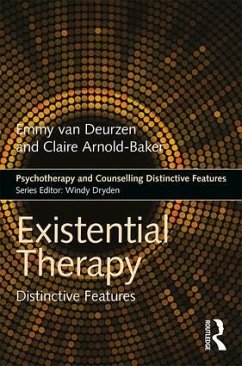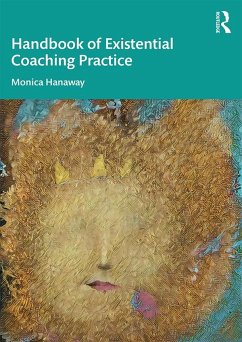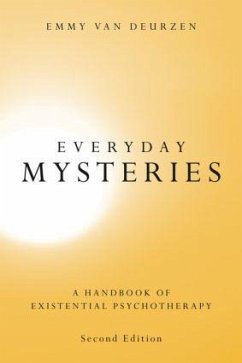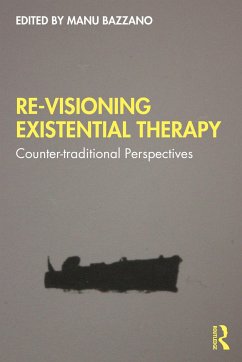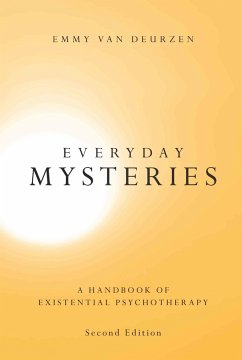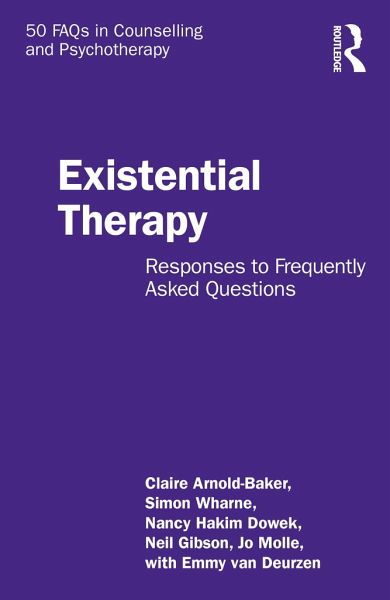
Existential Therapy
Responses to Frequently Asked Questions

PAYBACK Punkte
11 °P sammeln!
In Existential Therapy: Responses to Frequently Asked Questions, the authors address those questions most frequently asked by potential clients of existential therapy or by people beginning their training or by those interested in counselling or psychotherapy.The book is divided into five parts, with each focusing on responding to questions about different elements of existential theory and its practice and applications:Part 1: Existential philosophyPart 2: Existential method and theoryPart 3: Existential skills and practicePart 4: Existential applications in different contextsPart 5: Existent...
In Existential Therapy: Responses to Frequently Asked Questions, the authors address those questions most frequently asked by potential clients of existential therapy or by people beginning their training or by those interested in counselling or psychotherapy.
The book is divided into five parts, with each focusing on responding to questions about different elements of existential theory and its practice and applications:
Part 1: Existential philosophyPart 2: Existential method and theoryPart 3: Existential skills and practicePart 4: Existential applications in different contextsPart 5: Existential relevance to everyday life
The Q&A format, presented in accessible language, emphasises commonly unknown or misunderstood areas that are typically overlooked.
The book will appeal to a wide audience of potential clients and trainees, practitioners from other approaches, and those outside of the profession who are curious to understand more about existential therapy.
The book is divided into five parts, with each focusing on responding to questions about different elements of existential theory and its practice and applications:
Part 1: Existential philosophyPart 2: Existential method and theoryPart 3: Existential skills and practicePart 4: Existential applications in different contextsPart 5: Existential relevance to everyday life
The Q&A format, presented in accessible language, emphasises commonly unknown or misunderstood areas that are typically overlooked.
The book will appeal to a wide audience of potential clients and trainees, practitioners from other approaches, and those outside of the profession who are curious to understand more about existential therapy.





